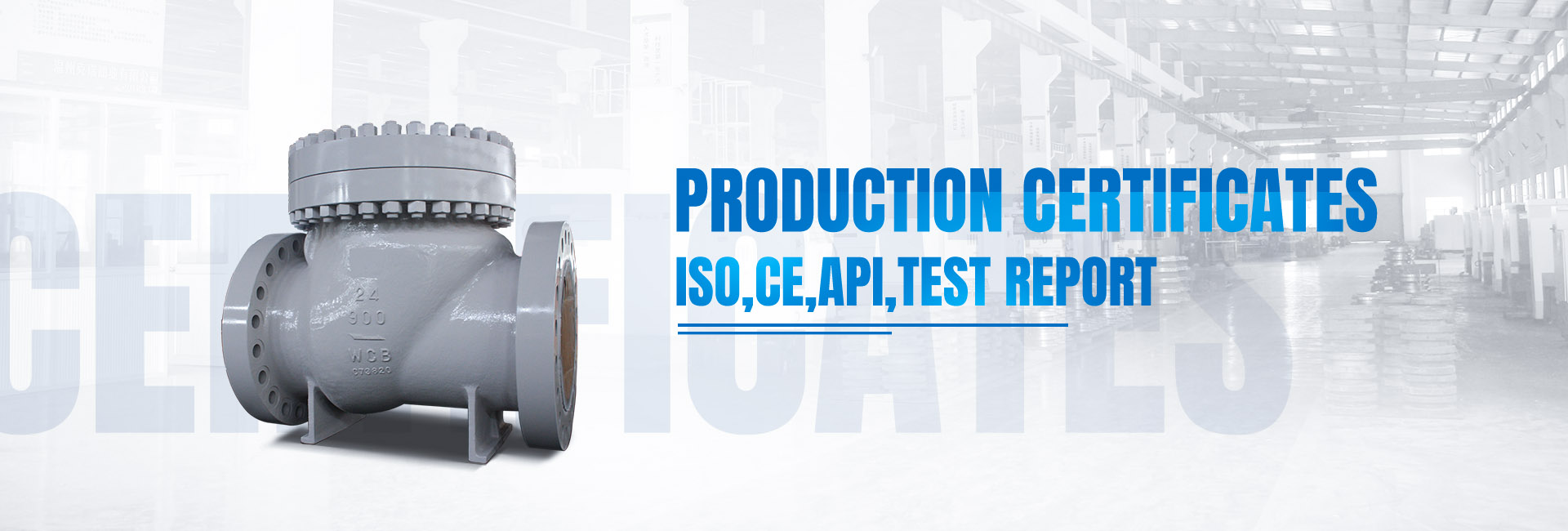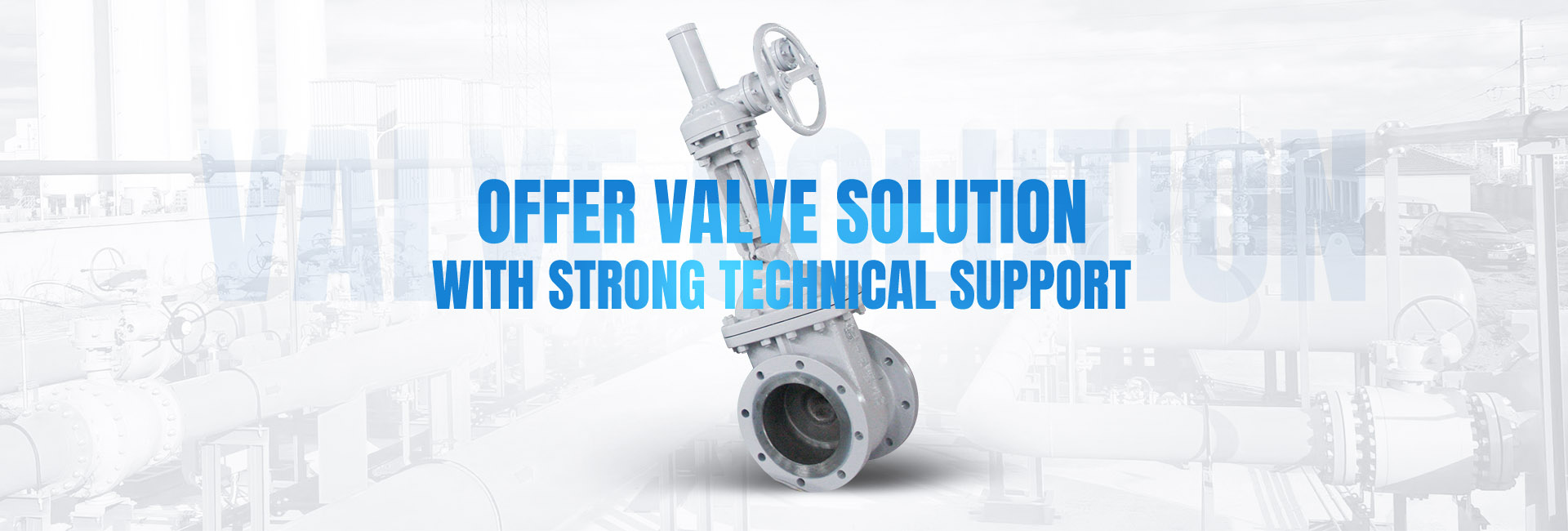ਖੋਰ ਇੱਕ ਮਹੱਤਵਪੂਰਨ ਤੱਤਾਂ ਵਿੱਚੋਂ ਇੱਕ ਹੈ ਜੋ ਵਾਲਵ ਨੂੰ ਨੁਕਸਾਨ ਪਹੁੰਚਾਉਂਦੀ ਹੈ।ਵਾਲਵ ਸੁਰੱਖਿਆ ਵਿੱਚ, ਵਾਲਵ ਖੋਰ ਸੁਰੱਖਿਆ ਇੱਕ ਮਹੱਤਵਪੂਰਨ ਮੁੱਦਾ ਹੈ ਜਿਸ ਬਾਰੇ ਵਿਚਾਰ ਕਰਨਾ ਹੈ।ਮੈਟਲ ਵਾਲਵ ਲਈ, ਸਤਹ ਪਰਤ ਦਾ ਇਲਾਜ ਸਭ ਤੋਂ ਵਧੀਆ ਲਾਗਤ-ਪ੍ਰਭਾਵਸ਼ਾਲੀ ਸੁਰੱਖਿਆ ਵਿਧੀ ਹੈ।
1. ਢਾਲ
ਧਾਤ ਦੀ ਸਤ੍ਹਾ ਨੂੰ ਪੇਂਟ ਨਾਲ ਲੇਪ ਕੀਤੇ ਜਾਣ ਤੋਂ ਬਾਅਦ, ਧਾਤ ਦੀ ਸਤਹ ਵਾਤਾਵਰਣ ਤੋਂ ਮੁਕਾਬਲਤਨ ਅਲੱਗ ਹੋ ਜਾਂਦੀ ਹੈ।ਇਸ ਸੁਰੱਖਿਆ ਪ੍ਰਭਾਵ ਨੂੰ ਸ਼ੀਲਡਿੰਗ ਪ੍ਰਭਾਵ ਕਿਹਾ ਜਾ ਸਕਦਾ ਹੈ।ਪਰ ਇਹ ਧਿਆਨ ਵਿੱਚ ਰੱਖਣਾ ਚਾਹੀਦਾ ਹੈ ਕਿ ਪੇਂਟ ਦੀ ਇੱਕ ਪਤਲੀ ਪਰਤ ਇੱਕ ਸੰਪੂਰਨ ਸੁਰੱਖਿਆ ਭੂਮਿਕਾ ਨਹੀਂ ਨਿਭਾ ਸਕਦੀ।ਕਿਉਂਕਿ ਉੱਚ ਪੌਲੀਮਰ ਦੀ ਇੱਕ ਖਾਸ ਹਵਾ ਪਾਰਦਰਸ਼ੀਤਾ ਹੁੰਦੀ ਹੈ, ਜਦੋਂ ਪਰਤ ਬਹੁਤ ਪਤਲੀ ਹੁੰਦੀ ਹੈ, ਤਾਂ ਇਸਦੇ ਢਾਂਚਾਗਤ ਪੋਰ ਪਾਣੀ ਅਤੇ ਆਕਸੀਜਨ ਦੇ ਅਣੂਆਂ ਨੂੰ ਖੁੱਲ੍ਹ ਕੇ ਲੰਘਣ ਦਿੰਦੇ ਹਨ।ਨਰਮ-ਸੀਲ ਵਾਲਵ ਦੀ ਸਤਹ 'ਤੇ epoxy ਪਰਤ ਦੀ ਮੋਟਾਈ 'ਤੇ ਸਖ਼ਤ ਲੋੜ ਹੈ.ਇਹ ਦੇਖਿਆ ਜਾ ਸਕਦਾ ਹੈ ਕਿ ਬਹੁਤ ਸਾਰੀਆਂ ਕੋਟਿੰਗਾਂ ਲਈ ਮੁੱਲ ਅਣਕੋਟੇਡ ਸਟੀਲ ਸਤਹ ਤੋਂ ਵੱਧ ਹੁੰਦਾ ਹੈ।ਕੋਟਿੰਗ ਦੀ ਅਪੂਰਣਤਾ ਨੂੰ ਬਿਹਤਰ ਬਣਾਉਣ ਲਈ, ਖੋਰ ਵਿਰੋਧੀ ਕੋਟਿੰਗ ਨੂੰ ਘੱਟ ਹਵਾ ਦੀ ਪਰਿਭਾਸ਼ਾ ਦੇ ਨਾਲ ਇੱਕ ਫਿਲਮ ਬਣਾਉਣ ਵਾਲੇ ਪਦਾਰਥ ਦੀ ਵਰਤੋਂ ਕਰਨੀ ਚਾਹੀਦੀ ਹੈ ਅਤੇ ਇੱਕ ਵੱਡੀ ਢਾਲ ਵਾਲੀ ਵਿਸ਼ੇਸ਼ਤਾ ਦੇ ਨਾਲ ਇੱਕ ਠੋਸ ਫਿਲਰ ਦੀ ਵਰਤੋਂ ਕਰਨੀ ਚਾਹੀਦੀ ਹੈ, ਅਤੇ ਉਸੇ ਸਮੇਂ, ਕੋਟਿੰਗ ਲੇਅਰਾਂ ਦੀ ਗਿਣਤੀ ਵਿੱਚ ਵਾਧਾ ਕੀਤਾ ਜਾਣਾ ਚਾਹੀਦਾ ਹੈ. ਤਾਂ ਜੋ ਕੋਟਿੰਗ ਇੱਕ ਨਿਸ਼ਚਿਤ ਮੋਟਾਈ ਤੱਕ ਪਹੁੰਚ ਸਕੇ ਅਤੇ ਸੰਘਣੀ ਅਤੇ ਗੈਰ-ਪੋਰਸ ਹੋ ਸਕੇ।
2. ਖੋਰ ਦੀ ਰੋਕਥਾਮ
ਪਰਤ ਦੇ ਅੰਦਰੂਨੀ ਭਾਗਾਂ ਨੂੰ ਧਾਤ ਨਾਲ ਪ੍ਰਤੀਕਿਰਿਆ ਕਰਨ ਨਾਲ, ਧਾਤ ਦੀ ਸਤਹ ਨੂੰ ਪਾਸ ਕੀਤਾ ਜਾਂਦਾ ਹੈ ਜਾਂ ਕੋਟਿੰਗ ਦੇ ਸੁਰੱਖਿਆ ਪ੍ਰਭਾਵ ਨੂੰ ਬਿਹਤਰ ਬਣਾਉਣ ਲਈ ਇੱਕ ਸੁਰੱਖਿਆ ਪਦਾਰਥ ਤਿਆਰ ਕੀਤਾ ਜਾਂਦਾ ਹੈ।ਗੰਭੀਰ ਮਾੜੇ ਪ੍ਰਭਾਵਾਂ ਤੋਂ ਬਚਣ ਲਈ ਵਿਸ਼ੇਸ਼ ਲੋੜਾਂ ਲਈ ਵਰਤੇ ਜਾਣ ਵਾਲੇ ਵਾਲਵ ਨੂੰ ਪੇਂਟ ਦੀ ਰਚਨਾ ਵੱਲ ਧਿਆਨ ਦੇਣਾ ਚਾਹੀਦਾ ਹੈ।ਇਸ ਤੋਂ ਇਲਾਵਾ, ਤੇਲ ਦੀ ਪਾਈਪਲਾਈਨ ਵਿੱਚ ਵਰਤਿਆ ਜਾਣ ਵਾਲਾ ਕਾਸਟ ਸਟੀਲ ਵਾਲਵ, ਕੁਝ ਤੇਲ ਦੀ ਕਿਰਿਆ ਦੇ ਤਹਿਤ ਪੈਦਾ ਹੋਏ ਡੀਗਰੇਡੇਸ਼ਨ ਉਤਪਾਦ ਅਤੇ ਧਾਤ ਦੇ ਸਾਬਣਾਂ ਦੀ ਸੁਕਾਉਣ ਦੀ ਕਿਰਿਆ ਵੀ ਜੈਵਿਕ ਖੋਰ ਇਨਿਹਿਬਟਰਸ ਦੀ ਭੂਮਿਕਾ ਨਿਭਾ ਸਕਦੀ ਹੈ।
3. ਇਲੈਕਟ੍ਰੋਕੈਮੀਕਲ ਸੁਰੱਖਿਆ
ਫਿਲਮ ਦੇ ਹੇਠਾਂ ਇਲੈਕਟ੍ਰੋਕੈਮੀਕਲ ਖੋਰ ਉਦੋਂ ਵਾਪਰਦੀ ਹੈ ਜਦੋਂ ਡਾਈਇਲੈਕਟ੍ਰਿਕ ਪਾਰਮੇਏਬਲ ਕੋਟਿੰਗ ਧਾਤ ਦੀ ਸਤਹ ਦੇ ਸੰਪਰਕ ਵਿੱਚ ਆਉਂਦੀ ਹੈ।ਕੋਟਿੰਗਾਂ ਵਿੱਚ ਫਿਲਰ ਵਜੋਂ ਲੋਹੇ ਨਾਲੋਂ ਵੱਧ ਸਰਗਰਮੀ ਵਾਲੀਆਂ ਧਾਤਾਂ ਦੀ ਵਰਤੋਂ ਕਰੋ, ਜਿਵੇਂ ਕਿ ਜ਼ਿੰਕ।ਇਹ ਕੁਰਬਾਨੀ ਵਾਲੇ ਐਨੋਡ ਦੀ ਸੁਰੱਖਿਆ ਦੀ ਭੂਮਿਕਾ ਨਿਭਾਏਗਾ, ਅਤੇ ਜ਼ਿੰਕ ਦੇ ਖੋਰ ਉਤਪਾਦ ਬੁਨਿਆਦੀ ਜ਼ਿੰਕ ਕਲੋਰਾਈਡ ਅਤੇ ਜ਼ਿੰਕ ਕਾਰਬੋਨੇਟ ਹਨ, ਜੋ ਕਿ ਝਿੱਲੀ ਦੇ ਪਾੜੇ ਨੂੰ ਭਰਨਗੇ ਅਤੇ ਝਿੱਲੀ ਨੂੰ ਤੰਗ ਕਰ ਦੇਣਗੇ, ਜੋ ਕਿ ਖੋਰ ਨੂੰ ਬਹੁਤ ਘਟਾਉਂਦਾ ਹੈ ਅਤੇ ਇਸ ਦੀ ਸੇਵਾ ਜੀਵਨ ਨੂੰ ਲੰਮਾ ਕਰਦਾ ਹੈ। ਵਾਲਵ.
ਪੋਸਟ ਟਾਈਮ: ਸਤੰਬਰ-30-2022



